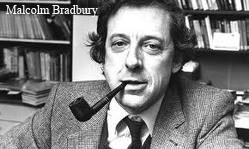 Read ‘The Art of Fiction’ by David Lodge for the third time in early January and again took notes. It is such a valuable book for the novelist and novice. He is crisp, clear, affirmative: “the novel is supreme among the forms of narrative literature in rendering subjectivity”.
Read ‘The Art of Fiction’ by David Lodge for the third time in early January and again took notes. It is such a valuable book for the novelist and novice. He is crisp, clear, affirmative: “the novel is supreme among the forms of narrative literature in rendering subjectivity”.
He can also be quite funny, as here, when he is quoting a scene from Malcolm Bradbury’s campus novel, ‘The History Man’, to make a point, though in this case it is the scene which is more important:
The adulterous Howard Kirk is in bed with his colleague Flora Benidorm, “who likes going to bed with men who have troubled marriages; they have so much more to talk about, hot as they are from the intricate politics of families which are Flora’s specialist field of study”!
Point of View: The choice of the point(s) of view from which the story is told is arguably the most important single decision that the novelist has to make, for it fundamentally affects the way readers will respond, emotionally and morally, to the fictional characters and their actions…
One of the commonest signs of a lazy or inexperienced writer of fiction is inconsistency in handling point of view… Of course, there is no rule or regulation that says a novel may not shift its point of view whenever the writer chooses; but if it is not done according to some aesthetic plan or principle, the reader’s involvement, the reader’s “production” of the meaning of the text, will be disturbed.
Mystery: …mystery is an invariable ingredient of popular narrative, whatever its form – prose fiction or movies or television soaps. Modern literary novelists, in contrast, wary of neat solutions and happy endings, have tended to invest their mysteries with an aura of ambiguity and to leave them unresolved.
Names: In a novel names are never neutral. They always signify, if it is only ordinariness. Comic, satiric or didactic writers can afford to be exuberantly inventive, or obviously allegorical, in their naming (Thwackum, Pumblechook, Pilgrim). Realistic novelists favour mundane names with appropriate connotations (Emma Woodhouse, Adam Bede). The naming of characters is always an important part of creating them, involving many considerations, and hesitations…
The invention of the word processor has made it easy to change the name of a character at a large stage of composition, just by touching a few keys, but I would have a strong resistance to doing that to any but the most minor character in my fiction. One made hesitate and agonize about the choice of a name, but once made, it becomes inseparable from the character, and to question it seems to throw the whole project en abîme, as the deconstructionists say.
Motivation: What kind of knowledge do we hope to derive from reading novels, which tell us stories we know are not “true”? One traditional answer to that question is: knowledge of the human heart, or mind. The novelist has an intimate access to the secret thoughts of her characters denied to the historian, the biographer or even the psychoanalyst. The novel, therefore, can offer us more or less convincing models of how and why people act as they do.

